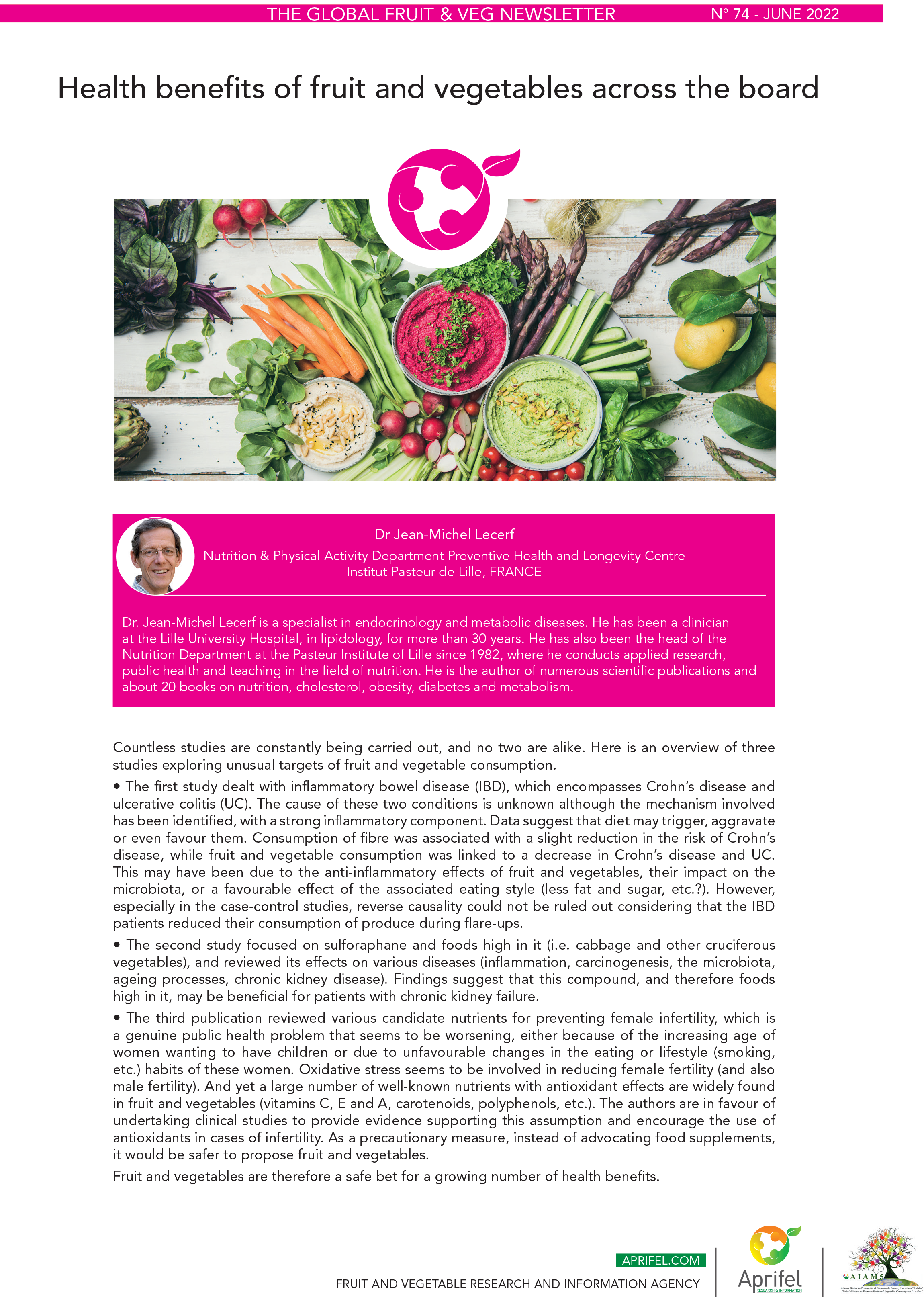Scientific news
Discover five recent scientific articles from our food, health and sustainability watch.


Italian researchers analysed the greenhouse gas emissions associated with dietary patterns in seven Mediterranean countries – Cypress, Croatia, Greece, Italy, Portugal, Spain and Malta – and 21 non-Mediterranean European countries. All of the dietary patterns analysed were associated with comparable GHG emissions: 4.46 kg CO2eq/person/day for Mediterranean countries; 4.03 kg CO2eq/person/day for non-Mediterranean countries. This was almost double that expected by a sustainable dietary pattern according to the EAT-Lancet Commission (2.49 kg CO2eq/person/day). The main observed deviations from the traditional Mediterranean diet concerned the consumption of meat, cheese, fat and carbohydrate-rich food. The overconsumption of meat, in particular red meat, contributed to 60% of the greenhouse gas excess.

An American team conducted a pilot study on the feasibility and potential impact of a family-based, home-delivery produce prescription and nutrition education programme. Twenty-five families were included. This programme’s results were encouraging but need to be confirmed and further explored. Indeed, following the intervention, fruit and vegetable consumption increased in a sub-group of children, but this intake remained below the recommended levels, particularly for vegetables. The findings also indicated improved access to food, although the food insecurity score was not significantly better after the intervention.

An Australian study assessed the effectiveness of two interventions focusing on nutrition and physical activity. This remote programme targeting parents aimed to increase their fruit and vegetable intake and that of their children. Four hundred and fifty-eight parents of children between the ages of two and six years were recruited and divided up into three groups: 1 (n=95) = telephone-based intervention; 2 (n=218) = online intervention; 3 (controls, n=145) = printed materials. Nine months after the programme’s launch, the parents who received the telephone-based intervention had significantly higher vegetable intakes than those who received the printed materials (+0.41 servings/day). The authors therefore conclude that there may be some benefit to this programme but recommend confirming these results with a larger sample and exploring methods for increasing parent engagement.

A cross-sectional online study that included 428 healthy American adults measured the dietary habits and psychological health of the participants. The results showed that more frequent fruit consumption was associated with reduced symptoms of depression and greater psychological well-being. Conversely, consumption of savoury snacks was associated with anxiety. Further studies are needed to establish a potential causal relationship and determine whether these findings may represent modifiable dietary targets likely to directly (and indirectly) influence our psychological health.

A study focusing on 234 young adults (aged 18 to 24) living in Australia explored the influence of social media on dietary behaviours. It was based on an analysis of data collected from online conversations. Some participants, more frequently women, expressed that exposure to online health-focused content made them feel guilty. Fast-food advertisements were perceived as a contributor to poor health behaviours and indicated as a major barrier to change. The participants therefore reported that social media is highly persuasive in terms of dietary behaviour. This suggests that social norms on the web are an important aspect of changing the health behaviours of young adults. Future social media-delivered dietary interventions should acknowledge the social and environmental factors that challenge the ability of young adults to make individual health behaviour improvements.

